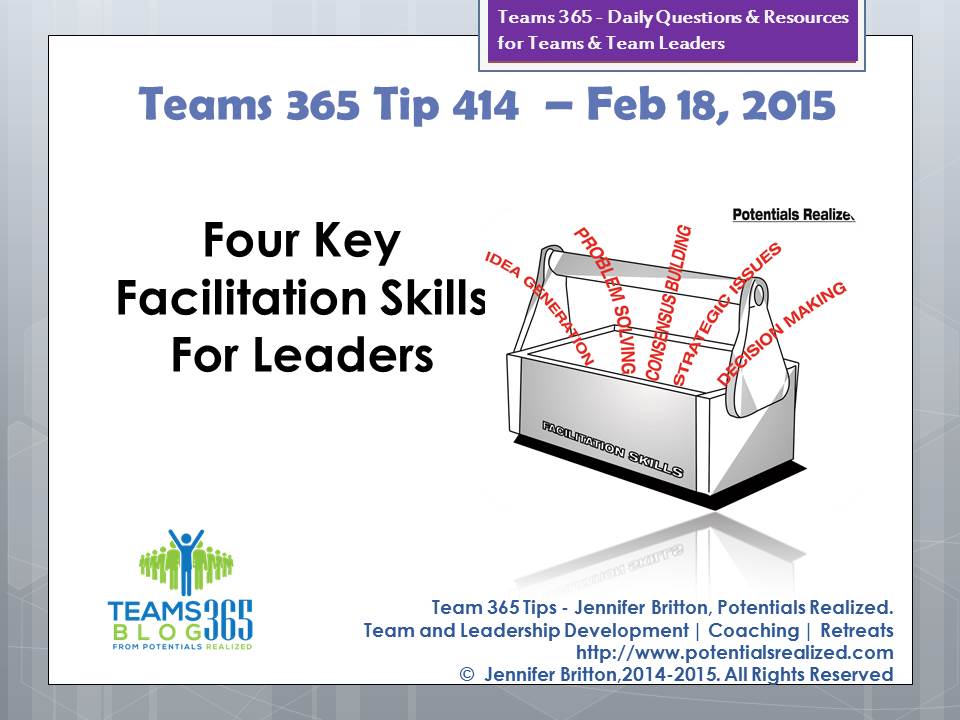Over the last few weeks in lead up to a two day Facilitation Skills Intensive program I am holding in Toronto on February 26 and 27, I've included a number of posts for leaders who find themselves needed to lead meetings, as well as facilitate team development sessions.
Today's post focuses on four key facilitation skills:
1. Reading the dynamics of the group. Keeping a pulse on the energy and mood of the group is key to any facilitated sessions. Glassy eyes are a signal it is time for a break or a change of pace. What does the group's body language say? What's needed?
If you haven't listened into this past weekend's Teams365 Sunday audio, click here, to access this 10 minute call which covers key issues at each stage of team development.
2. Asking great questions - Questions help to shape the flow of a conversation and What questions have a tendency to open up the space for dialogue and exploration. If you are really looking to tap into the knowledge of your team, watch how your What questions move them forward. Click here to read a past post on questions which are often used in coaching, but can be incorporated into team meetings or other facilitated sessions (You can read Teams365 #196:Coaching Questions here).
3. Keeping a strong hand on process - Facilitation is often about the process = keeping a group or team moving, helping to articulate the focus or agenda, and also keeping to time. In past posts I have suggested that involving team members in helping with time keeping, recording agreement points can also help the facilitator keep things tight in the process arena. A huge downfall today emerging out of our excessive meeting culture is a watering down of a tight hand on process.
4. Listening - Perhaps listening should go at the top of this list because masterful facilitators are great listeners. Listen for what's being said, and also point to what's not being said and what you are noticing in between the lines. At the same time you may also be listening at different levels around the energy of the group/team and what's next for them.
For many team members today, listening is a key skill area that is missing in business today. Think of how often you have fallen into the trap of partially listening when a team member came to share an issue with you. Partially listening might mean you didn't stop typing at your computer, looked at them but were thinking about another issue or nodding in agreement but not really listening to what was being said. Click here to read what I wrote in Teams365 #192 on Listening and Coaching.
In closing, If there was one of these four areas you wanted to put some attention around to refine your skills in, which one would it be?
Best,
Jennifer
Jennifer Britton
Author of From One to Many: Best Practices for Team and Group Coaching (Jossey-Bass, 2013)
Potentials Realized | Coaching Team Leaders
Contact us to set up a time to discuss leadership, teamwork and coaching needs for your team or organization
(416)996-8326

 RSS Feed
RSS Feed





